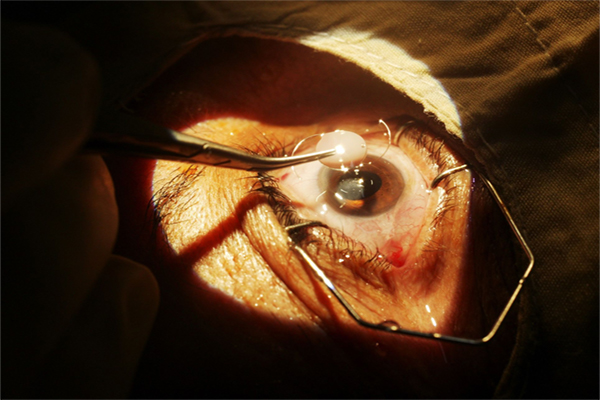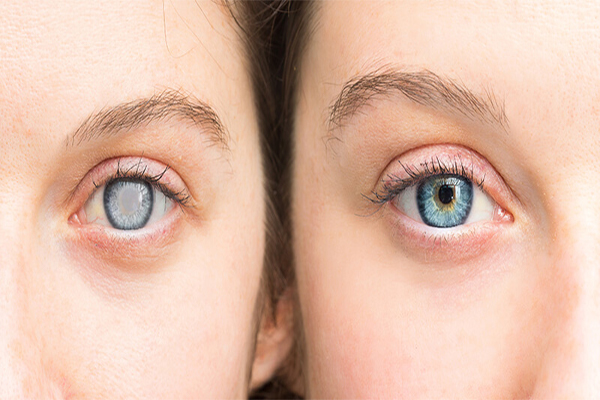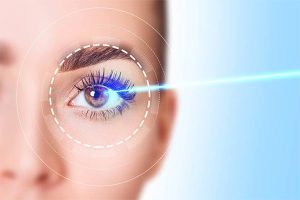Table of Contents
Cataract surgery is a method of removing the lens of the eye and replacing it with an artificial lens. Normally the lens of the eye is transparent; But due to cataracts, the lens of the eye becomes cloudy and eventually leads to vision problems and blurred vision in people. Cataracts are caused by aging and during the aging process. In primary cataracts, a person’s vision is simply improved by changing the grade of the glasses. But in secondary cataracts, the patient develops vision problems that even the use of contact lenses and glasses will not help improve his symptoms. In this case, the patient needs basic treatment.
However, due to these conditions, some people may not be able to have cataract surgery. In the continuation of this article, we will examine the contraindications for cataract surgery from Moj Aramesh Amitis Health Tourism Company.
Contraindications to cataract
It is rare for cataract surgery to be avoided or avoided. If the cataract is mild, the level of vision can be easily improved by changing the degree of the glasses. But if the cataract is severe, it may cause discomfort and vision problems.
Even contact lenses and glasses may not improve a person’s vision problems and cataract surgery may be needed.
Sometimes, in addition to cataracts, you may have other eye diseases that limit the chances of achieving the desired result from cataract surgery. For example, if you have cataracts and a detached retina, cataract surgery may not be able to improve your vision. Cataract surgery is not recommended in such cases. In certain cases, your ophthalmologist will advise you to postpone cataract surgery, and you can decide when cataract surgery is best for you by consulting a specialist. Some people think they can not have cataract surgery because of LASIK or other vision modification surgeries. But in fact, previous corrective surgeries do not prevent cataract surgery.
Postponing cataract surgery
A cataract is not an emergency surgery and you can make the right decision before the operation and have the surgery at the right time. In general, the best time for cataract surgery is when your vision is blurred and you can not perform your daily activities properly and glasses or contact lenses have not improved your vision. But the important thing is that postponing cataract surgery has no benefit for you and only increases the risk of complications before and after surgery.
Delays in cataract surgery can also cause problems, such as:
- Cataract progression
Delays in cataract surgery can make surgery risky. Because the time and power required to remove the lens are greatly increased and eventually cause damage to the structure around the eye. The development of cataracts also causes inflammation and high pressure in the eye, which, if not treated quickly, can lead to irreversible vision loss. Most elderly people with cataracts have poor vision in low light, which can cause them to fall and be damaged in the dark. Sixty-six percent of fractures in the elderly are due to cataracts and associated vision loss. Delayed cataract surgery In addition to the development of cataracts, there is a risk of other complications during surgery.
- Wound burns
- Prolonged surgery time
- Some postoperative complications such as high eye pressure and so on.
Contraindications to cataract surgery in Iran
You can not have cataract surgery if you have cataracts and any of the following conditions:
- If you are pregnant or breastfeeding, you will not be a good option for cataract surgery in Iran. Because pregnancy and lactation can cause unpredictable changes in the cornea.
Cataract surgery is prohibited if you have conditions such as osteoarthritis, autoimmune diseases such as lupus, or immunodeficiency diseases such as AIDS.
Because having such diseases leads to the body’s inability to heal.
Cataract surgery is prohibited if you have keratoconus or any disorder that causes the cornea to become thinner. Because such disorders lead to serious corneal problems during and after surgery and ultimately lead to reoperation and poor vision after cataract surgery.
- If you are taking medications that cause eye problems, such as acne medications, rhythm hydrochloride, and amiodarone; You will still be barred from cataract surgery. Because the use of these drugs affects the accuracy of cataract surgery and how the cornea heals after surgery and reduces the visual condition of the eye after surgery.
- If your cornea is so thin that it does not allow the doctor to cut the proper flap during surgery, you can not have cataract surgery. Because having a flap is essential for your eyes.
Who is cataract surgery recommended for?
Cataract surgery is performed for people with certain disorders that are caused by cataracts. Many people with cataracts have good vision and the disease does not cause them to blur their vision. Such conditions do not cause problems in daily activities. Therefore, such people can not have cataract surgery. But if cataracts lead to blurred vision and difficulty doing things like reading books, driving, knitting, and other activities, cataract surgery is necessary and appropriate for these people.
In general, surgery is not necessary until cataracts lead to impaired vision.
Cataract surgery is highly recommended for people who have significant symptoms. People who have already had cataract surgery are not barred from having surgery again.

Risks of Cataract Surgery
Cataract surgery is one of the safest and most effective surgeries. But like any surgery, there are some possible risks and complications after surgery. Cataract surgery is generally performed without general anesthesia and with short-term anesthesia. Therefore, performing this surgery does not pose a significant risk to heart and lung patients.
Complications of cataract surgery
Most complications of this surgery can be treated with medication and are not considered serious risks. Some of the complications of this surgery are:
- Inflammation
- Infection
- Inflation
- Bleeding
- Drooping eyelids
- Retinal detachment
- In the artificial lens
- Secondary cataracts
- Glaucoma
- Loss of vision
Who is allowed to have cataract surgery?
In general, some eye problems caused by cataracts can interfere with daily activities.
Therefore, when deciding on cataract surgery, you should make sure that:
- You have a vision problem so that you can not do or drive as before.
- You have trouble reading content and watching TV, etc.
- Cooking, shopping, climbing stairs, etc. are difficult for you.
- Intense lights make your vision more difficult.
If you have such problems with cataracts, cataract surgery is a good option for you.
Otherwise, you may not need cataract surgery for many years if your vision is still good and you are not having trouble doing things.
Concluding remarks
One of the most important causes of blindness and impaired vision in many people, especially the elderly, is cataracts, which with the advancement of technology and surgical techniques, their vision will be restored with surgery. After surgery, most people need to wear glasses in some cases.
So your doctor will decide through an examination when your recovery is complete to minimize the use of glasses, and this process usually lasts one to three months after surgery. If both of your eyes have cataracts, second eye surgery is usually performed after the first eye has healed.
Cataract surgery is performed with great success and most people’s vision is greatly improved after that. But people who have cataract surgery may have secondary cataracts. This complication occurs when part of the opaque lens is not removed during surgery, causing blurred vision and eventually leading to secondary cataracts. If this complication occurs during painless five-minute outpatient surgery, it can be removed with laser treatment. You can contact cataract surgery experts in Iran to receive cataract surgery in Iran, and receive all services related to cataract surgery in Iran.
Author: Sh. Khazaei
Translator: N. Rahimifar





